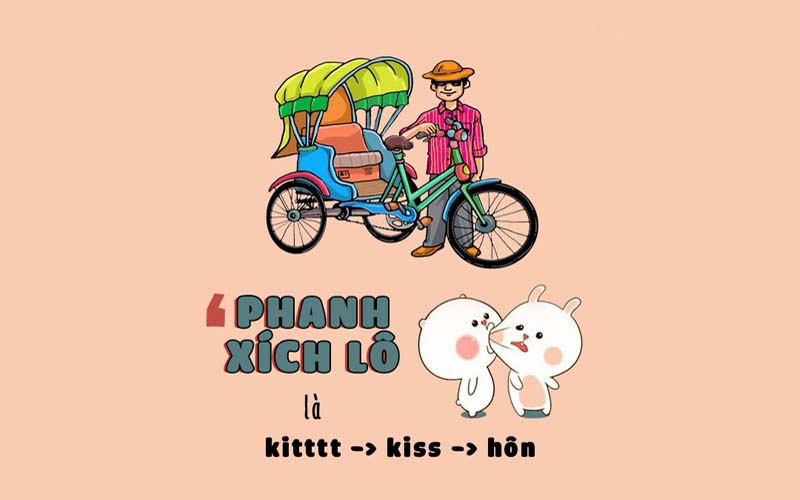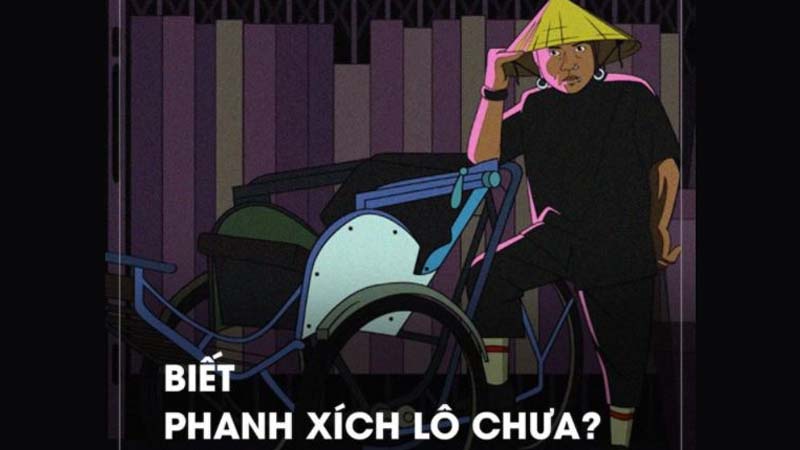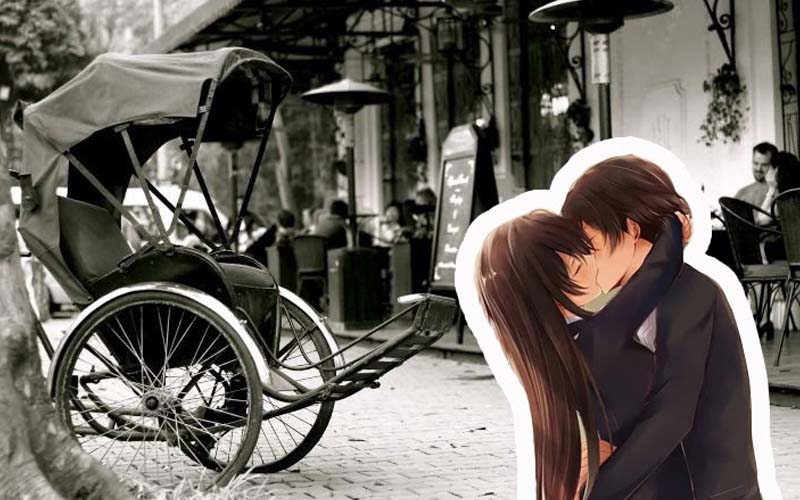Today, we will unravel the meaning behind the phrase “phanh xích lô.” Is it simply referring to the brake of a cyclo, or is there more to it? Let’s find out.
1. Unveiling the Meaning of “Phanh Xích Lô”
 What does “Phanh Xích Lô” mean?
What does “Phanh Xích Lô” mean?
Literally, “phanh xích lô” refers to the braking system installed on a cyclo, whose function is to decelerate, allowing the vehicle to move slowly or come to a complete stop, depending on the rider’s intention.
However, if it were that simple, “phanh xích lô” wouldn’t have gained such widespread popularity on social media. There’s a deeper and rather intriguing meaning behind it.
Did you know that when a cyclo brakes, it produces a distinct sound? That sound is “kít kít,” and interestingly, “kít” is pronounced similarly to the English word “kiss.” So, instead of using “kiss,” people use “phanh xích lô” to describe the act of kissing, conveying the affection between a loving couple.
2. Origin of the Phrase “Phanh Xích Lô”
 Where did the phrase “Phanh Xích Lô” come from?
Where did the phrase “Phanh Xích Lô” come from?
“Phanh xích lô” first appeared in a scene from the movie “Phía Trước Là Bầu Trời” (Ahead is the Sky) directed by Đỗ Thanh Hải and released in 2001.
In this particular scene, a group of young men are exercising and chatting outside. When one of them, Nghĩa, sees Bích entering a room with her boyfriend, he asks his friends what they are doing inside. One of the friends jokingly guesses they are “phanh xích lô,” and when questioned about the term, Nghĩa explains that it means “kiss.”
3. When Did “Phanh Xích Lô” Become Popular?
 When did “Phanh Xích Lô” gain popularity?
When did “Phanh Xích Lô” gain popularity?
The phrase “phanh xích lô” gained traction after a clip from the aforementioned movie scene was shared on social media. Internet users, especially those from the Gen Z cohort, embraced the term and incorporated it into their vocabulary to refer to the act of kissing.
4. Using the Phrase “Phanh Xích Lô”
 How to use the phrase “Phanh Xích Lô”
How to use the phrase “Phanh Xích Lô”
As mentioned earlier, “phanh xích lô” is used to describe kissing. You can use it in various lighthearted situations, such as:
- Inviting your partner to kiss in a humorous way: “Anh/em ơi, let’s ‘phanh xích lô,’ shall we?” or “It’s been a while since we ‘phanh xích lô,’ anh/em.”
- Chatting with friends: “Hey, how did you manage to ‘phanh xích lô’ with your partner the other day?”
However, it’s important to consider the context and avoid using this phrase in formal settings or with elders to maintain appropriateness. It’s best reserved for conversations with friends and colleagues.
We’ve just revealed the fascinating story behind the phrase “phanh xích lô.” So, what are you waiting for? Go ahead and add this unique expression to your vocabulary!

































